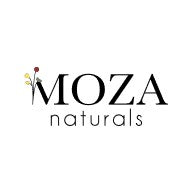
Why You Should BreastFeed - Kate Billington, edited by Filipe Muhale, PhD
Breastfeeding. To some people this is a very scary word, but to others not so much. Breastfeeding can be a stressful time, there are always worries of not producing enough milk, the pain that comes along with it, worrying your baby will feed too much, etc. One of the biggest issues I have found is women believing they have an insufficient milk supply. This is one of the biggest reasons for early weaning. If you have believed this yourself, you are not alone. As statistics show that 50% of women believe this exact thing. What you may not want to hear is that most of this is probably just going on in your head. Another study shows that actually only 5% of women suffer from a physiologically insufficient supply! That is why we created our product the breast milk booster. Breast milk has so many amazing benefits, that you do not want your baby missing out on. Yes there is always formula, but it is just not the same.
One big benefit of breastfeeding that you can't get through formula is the ability to reduce risks and the severity of infections. Neonatal saliva is rich in nucleotides. When you breastfeed you are bringing that bacteria to your babies mouth. While it sounds harmful it is actually a great thing! Microbiota will grow faster in babies' mouth and gut. Babies' microbiota helps the development of the innate immunity to make your baby more resistant to parasites and better fight them off!
Breastfeeding is more easily digested than formula and helps your baby have better bowel movements since hydrogen peroxide facilitates gastric motor contractions. Fresh breast milk is rich in physiological H2O2 (hydrogen peroxide). Thus leading to enhanced microbicidal (these reduce infectivity of microbes, such as viruses/bacteria) properties of breastmilk.

When you breastfeed you are also making skin-to-skin contact with your baby, which can increase the bond you have.
Here at Moz Nutraceuticals we know that breastfeeding can be very stressful, so that is why we created the breast milk booster. It increases milk supply within 24 hours, and has lasting benefits. Do you and your baby a favor and give it a try!

Leave a comment
Comments will be approved before showing up.
Also in News

The Best Way To Alleviate Eczema Naturally, by Kate Billington, edited by Filipe Muhale, PhD
How to Get Rid of Stretch Marks Naturally, by Kate Billington, edited by Filipe Muhale, PhD
Stretch marks. One of the things that most people hate having on their bodies. Especially, the stretch marks that come from bringing new life into this world. The worst thing about them is that they are practically unavoidable.They can occur from pregnancy, weight loss, rapid muscle growth, diseases, etc.
Baby Skin Care: To Occlude or Not Occlude? by Kate Billington, edited by Filipe Muhale, PhD
In the last 40 years it is well known that, due to structural and functional differences, adult and infant skins moisturize utilizing distinct mechanisms.
- Infant skin up to the age one and beyond is structural and functionally immature.
- In adults, our bodies, to retain water and keep skin hydrated, specialized cells (corneocytes) produce skin humectants molecules named Natural Moisturizing Factor (NMF).
- Curiously, compared to adults, infants skin has a significantly lower NMF concentration.
